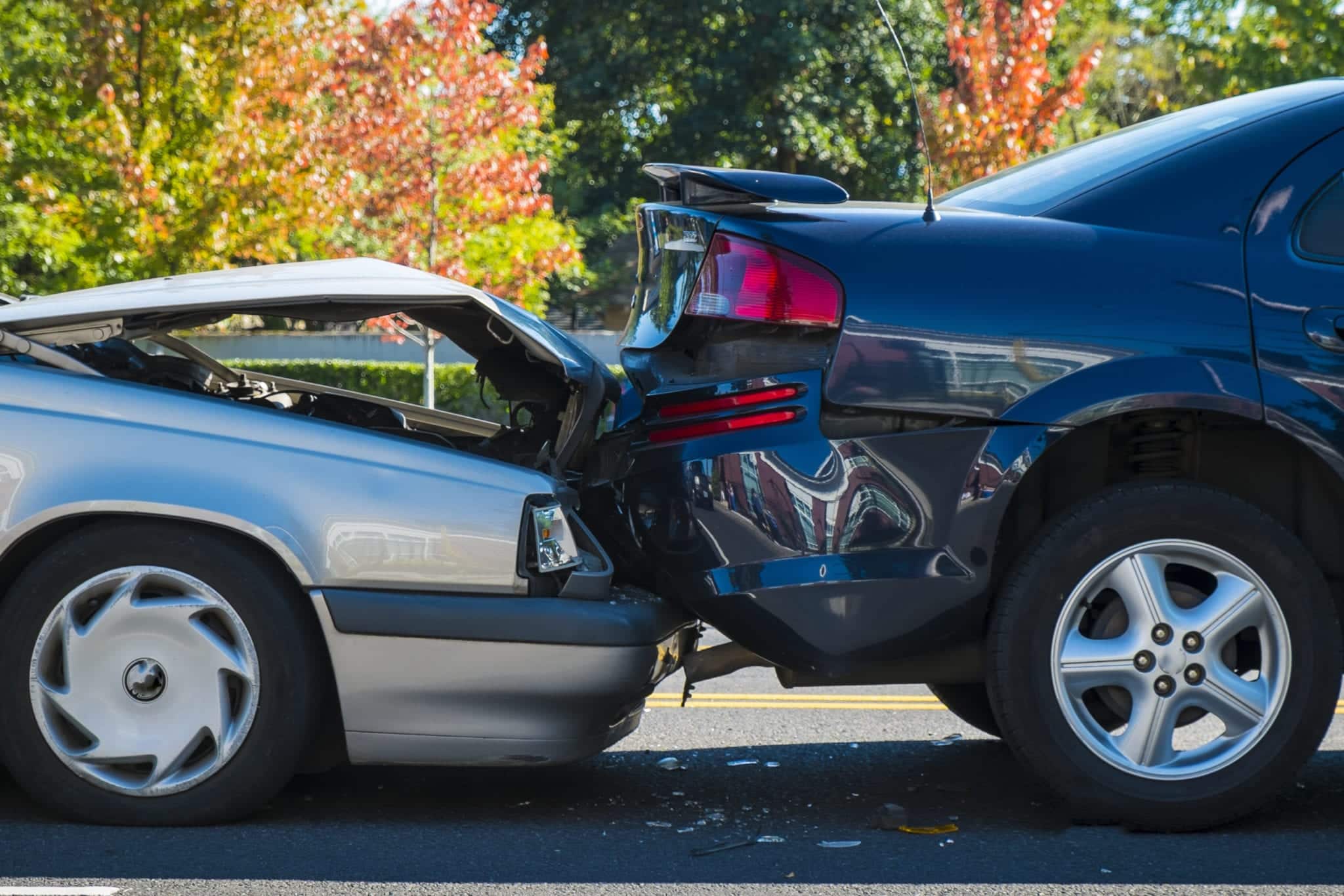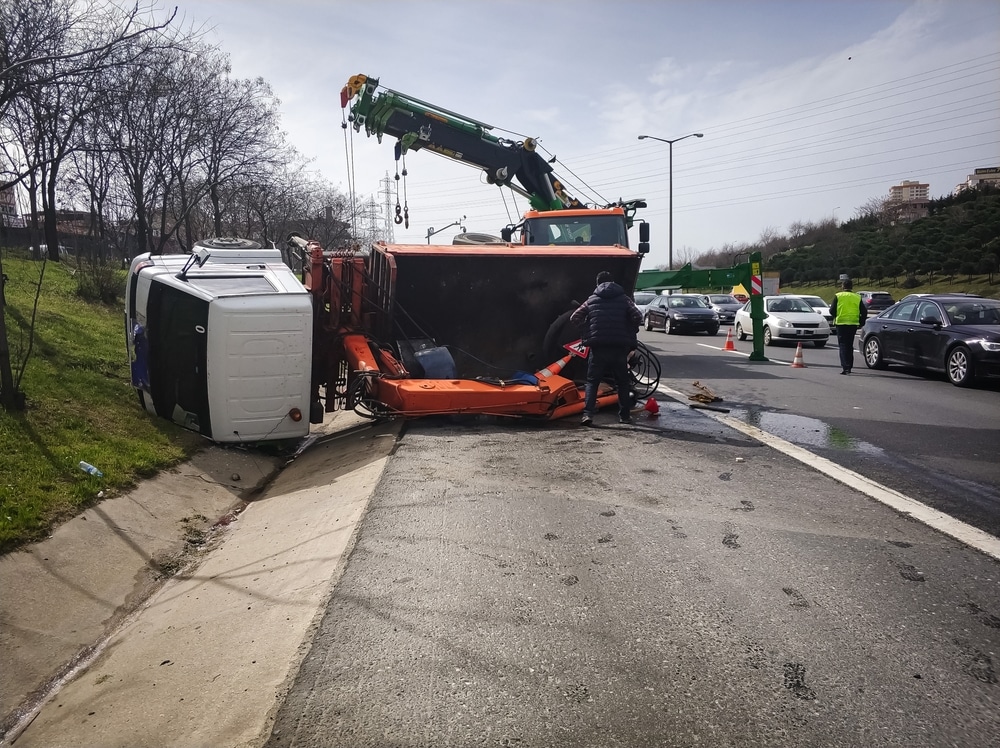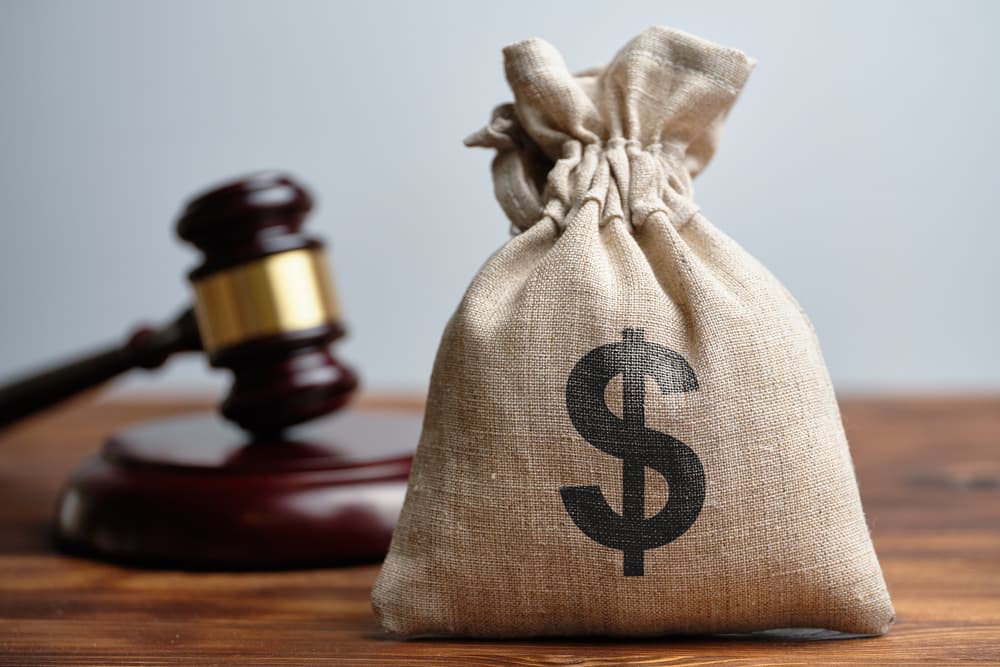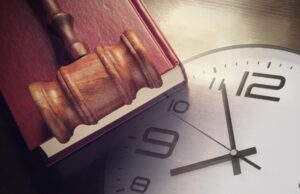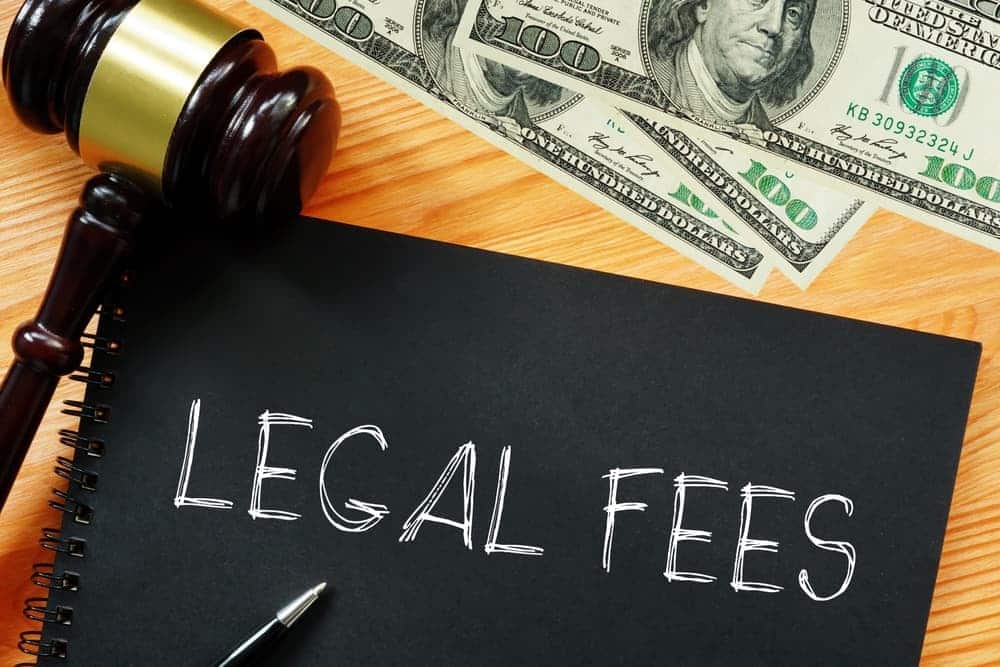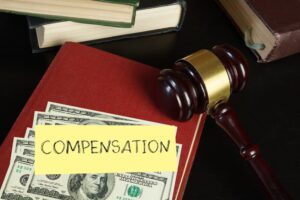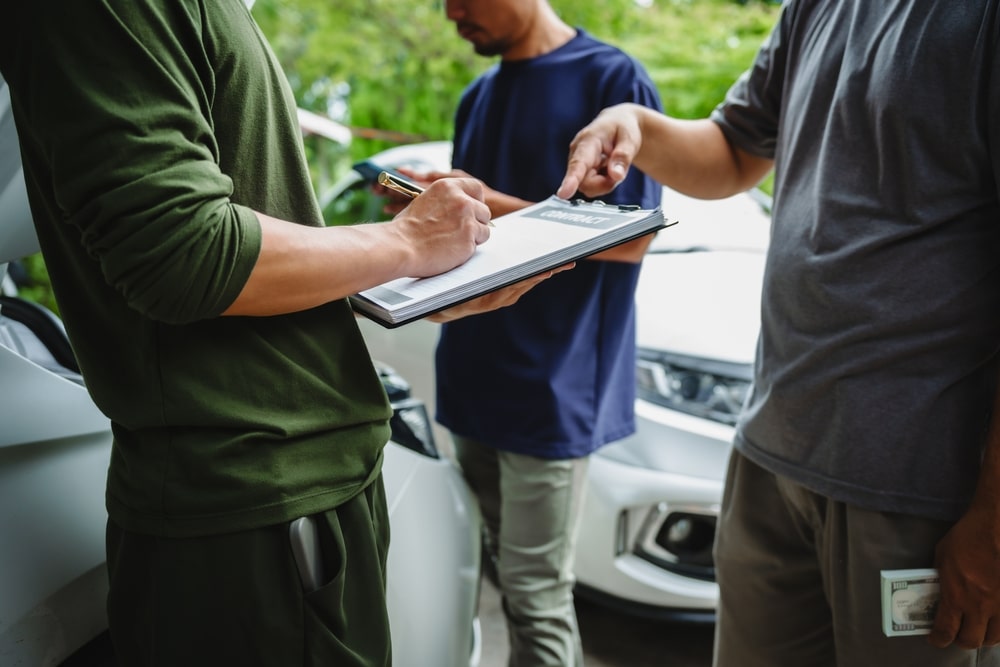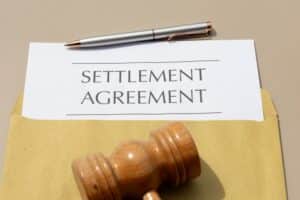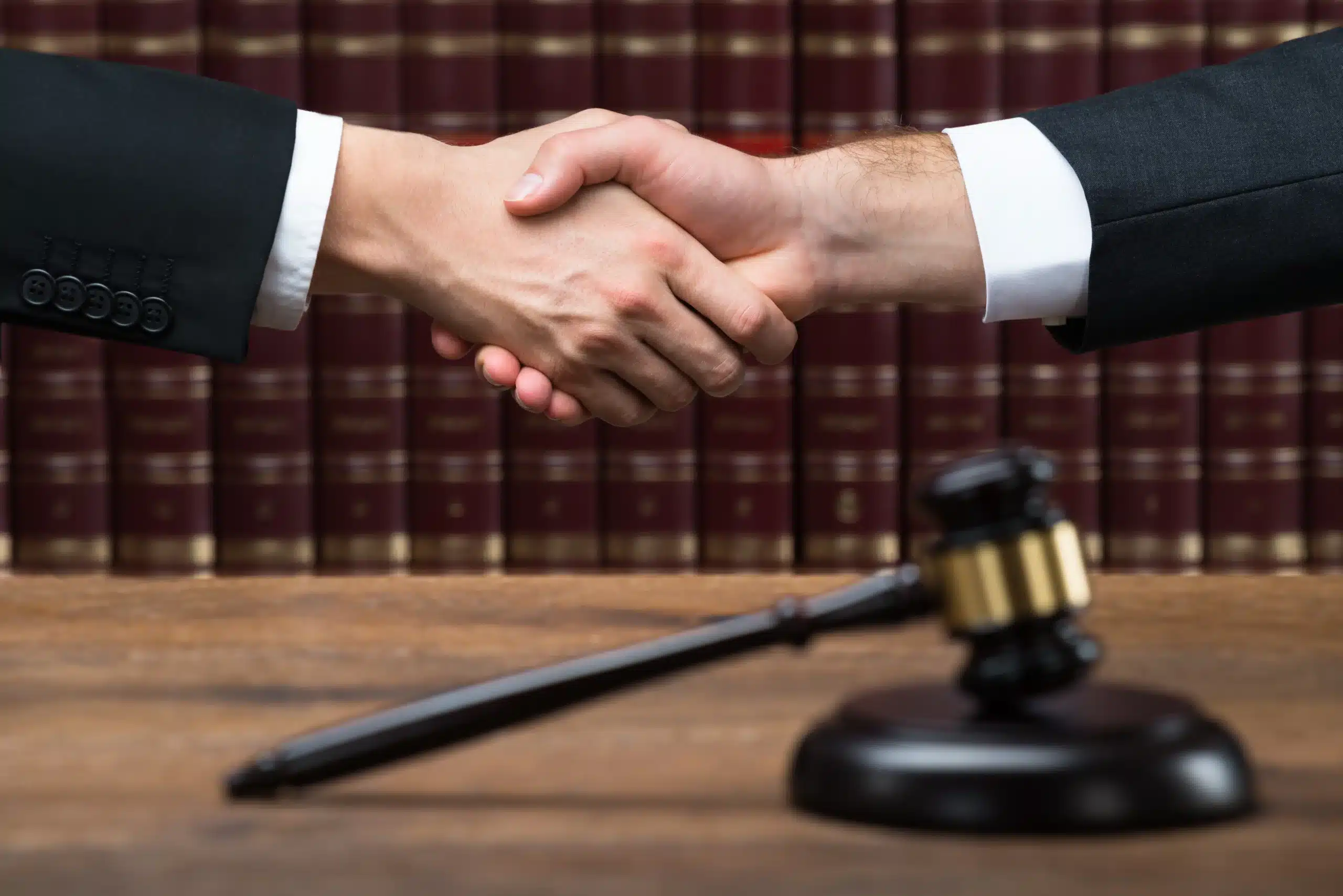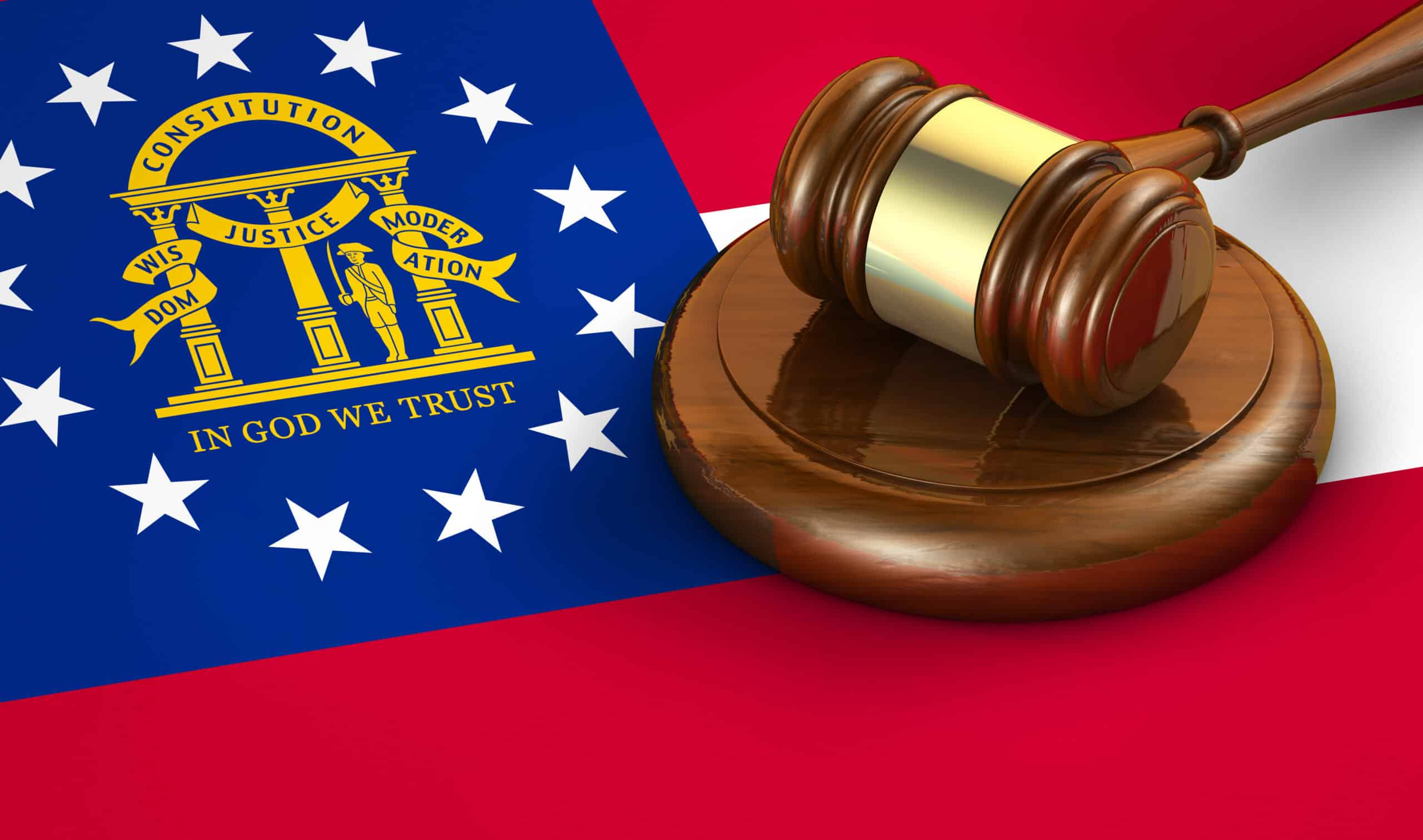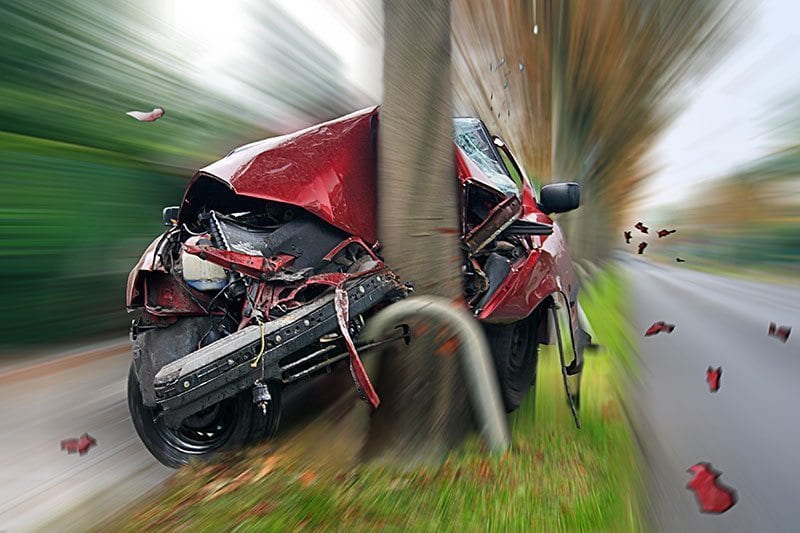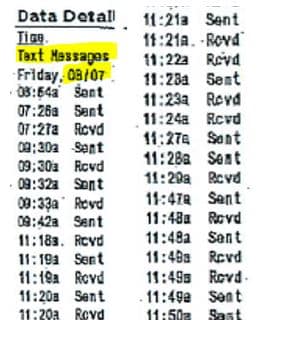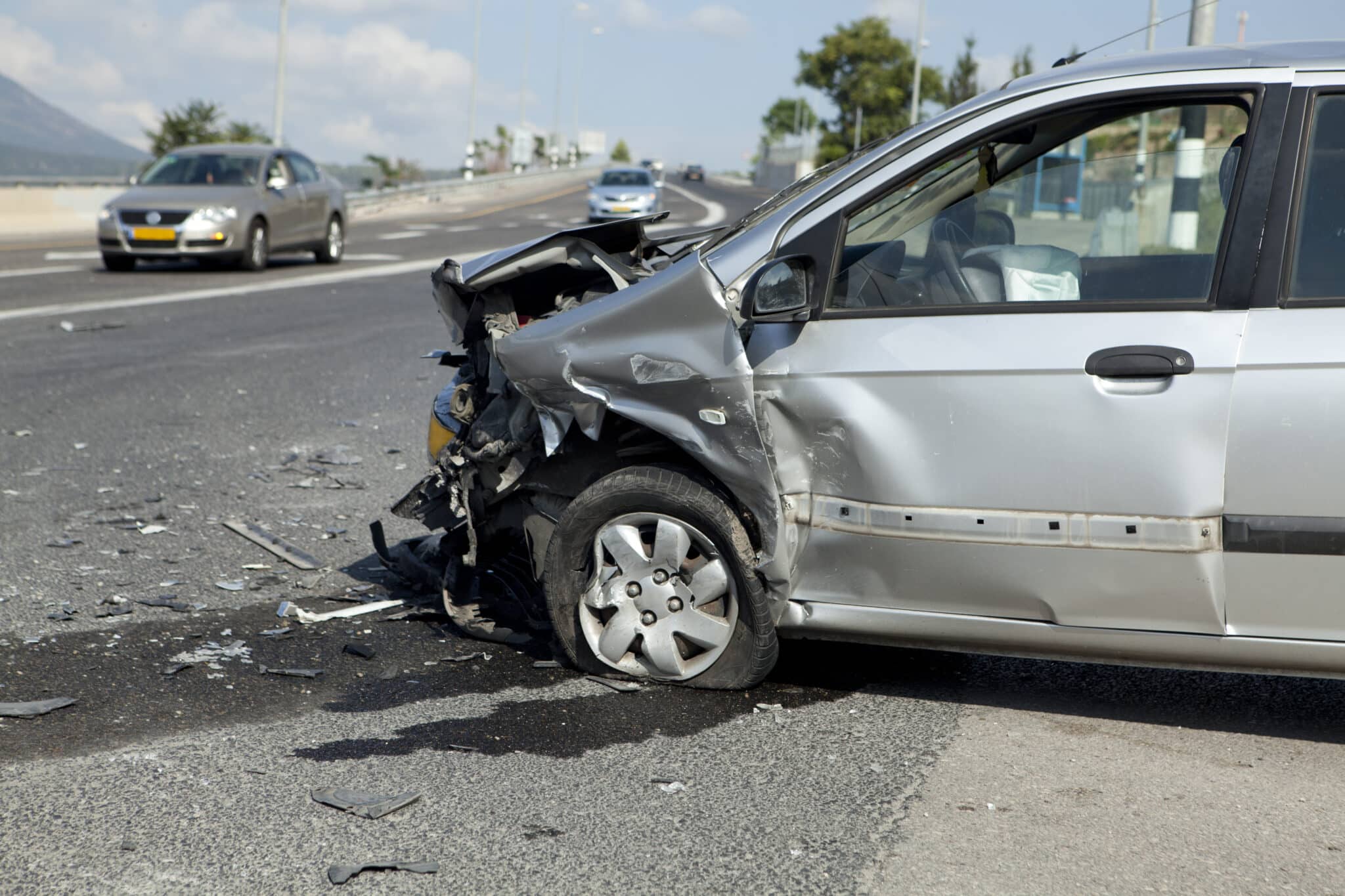The rear driver typically bears responsibility for a rear-end collision in Georgia, but liability isn’t always automatic. The front driver may share responsibility if they brake-checked, reversed, or failed to signal.
At Williams Elleby Howard & Easter, we examine dashcam footage, traffic citations, and witness accounts to prove who violated Georgia’s following-distance and negligence rules, then fight for fair compensation when another driver’s carelessness leaves you injured.
Key Takeaways for Rear-End Collision Responsibility in Georgia
- Rear drivers must maintain a safe following distance under O.C.G.A. § 40-6-49, and a violation often establishes fault, but officers don’t always cite the statute at the scene.
- Georgia’s 50 percent comparative negligence rule (O.C.G.A. § 51-12-33) bars recovery if you’re 50 percent or more at fault, and reduces your compensation by any fault percentage below that threshold.
- Front drivers may bear partial or full liability for brake-checking, reversing at a stoplight, driving without taillights, or making sudden lane changes without signaling.
- Dashcam video, skid-mark analysis, and traffic-camera stills matter more than police-report narratives, which sometimes reflect incomplete scene investigations.
- Chain-reaction crashes distribute fault across multiple drivers, and Georgia’s comparative fault rules let you pursue compensation from all responsible drivers as long as you aren’t more than 50% at fault.
Is the Rear Driver Always at Fault in a Georgia Rear-End Collision?
Not necessarily. While Georgia’s traffic code presumes the rear driver violated the safe-following-distance rule, that presumption collapses when evidence shows the front driver acted negligently. Even if a Kennesaw officer writes a citation under O.C.G.A. § 40-6-49 (“following too closely”), that ticket alone doesn’t eliminate the front driver’s potential fault.
Courts examine what each driver did in the seconds leading up to impact. Actions that may shift liability to the front driver include:
- Brake-checking: Sudden, unexpected braking without cause may make the front driver responsible for creating the collision.
- Reversing at intersections: Backing up at a red light to correct a missed turn converts the front driver into the striking vehicle.
- Equipment failures: O.C.G.A. § 40-8-23 mandates working stop lamps, and violation of an equipment statute often creates negligence per se.
- Unsafe lane changes: Cutting into another lane without signaling or leaving inadequate space for following traffic.
Georgia law requires operational safety equipment, and violation of these equipment statutes can create negligence that shifts fault.
Who’s Responsible for a Three-Car Chain-Reaction Rear-End Crash?
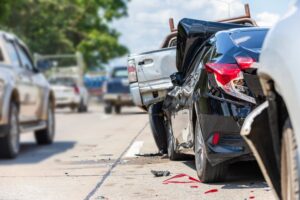
Picture a common Barrett Parkway scenario:
Three cars travel in the same lane. The first car stops for a pedestrian in the crosswalk. The second car attempts to safely stop behind the first. The third car, following too closely, slams into the second car and pushes it forward into the first car.
The third driver clearly violated Georgia’s following-distance rule and bears primary responsibility. But there are several situations where the middle driver may share fault:
- Tailgating the front car: If the second driver was following so closely that they would have rear-ended the first car anyway, even without being hit from behind.
- Failing to maintain a safe buffer: When the second driver left insufficient space to absorb impact without being pushed into the vehicle ahead.
- Contributing to the initial collision: If the second driver was distracted, speeding, or already braking late before the third car’s impact.
- Stopping suddenly without cause: When the second driver created the dangerous situation by braking unexpectedly in flowing traffic.
Joint and Several Liability in Multi-Car Crashes
Georgia follows a shared liability rule in cases involving chain reactions. When multiple defendants share responsibility for your injuries, you may pursue compensation from any defendant as long as you aren’t 50% or more responsible for causing the crash.
This is particularly crucial when one or a few drivers carry adequate insurance while another is underinsured or uninsured. This means you’re not stuck trying to collect small fractions from each party.
Insurers may use chain reactions by spreading blame across multiple parties to reduce their own exposure. Our car accident attorneys reconstruct the sequence using accident scene photos that show final rest positions, paint transfer patterns on bumpers, and crush-depth measurements.
How Does Georgia’s Modified Comparative Negligence Rule Affect Rear-End Claims?

Rear-end disputes turn on these percentage splits. Insurers may not deny liability entirely, but instead argue you contributed to the collision. Any fault assigned to you reduces your compensation proportionally, and reaching the 50 percent threshold eliminates it entirely.
What Damages Can You Recover After a Rear-End Collision in Georgia?
Georgia law categorizes rear-end collision damages into economic losses with clear dollar values and non-economic harm, which compensation attempts to address. The at-fault driver’s liability insurance covers both categories up to policy limits, and your own uninsured-motorist coverage may fill gaps when the rear driver lacks adequate insurance.
Recoverable damages in Georgia rear-end cases include:
- Medical expenses: Cost of emergency-room visits at hospitals like Wellstar Kennestone, diagnostic imaging, orthopedic consultations, physical therapy, prescription medications, and future medical care when injuries require ongoing treatment or surgical intervention.
- Lost wages and earning capacity: Wages lost while attending medical appointments or recovering from injuries, future lost earnings when permanent limitations prevent you from returning to your previous work.
- Property damage: Vehicle-repair costs, replacement value for totaled cars, diminished value after repairs, and rental-car expenses during the repair period.
- Pain and suffering: Physical pain, emotional distress, diminished quality of life, anxiety about driving, chronic discomfort that disrupts sleep or daily activities, and loss of enjoyment from hobbies or family time you can no longer pursue. Georgia doesn’t cap these damages in ordinary negligence cases.
- Punitive damages (in extreme and rare cases): O.C.G.A. § 51-12-5.1 authorizes punitive awards when the rear driver acted with willful misconduct, such as drunk driving, intentional brake-checking during road rage, or texting through multiple red lights. These damages punish the defendant rather than compensate for your losses and are typically capped at $250,000 unless alcohol or drugs are involved.
Treatment records must connect your injuries to the collision. Gaps between the accident date and your first medical visit give insurers room to argue your injuries stemmed from something other than the rear-end impact.
What Evidence Proves Fault After a Rear-End Collision in Kennesaw?
Proving fault after a rear-end collision requires more than the police report’s “Driver 2 following too closely” notation. Building a strong case means preserving multiple forms of evidence before they disappear.
Traffic Citations
A citation creates a rebuttable presumption of negligence fi the at-fault driver pleads guilty to the citation. At Williams Elleby Howard & Easter, our lawyers may request the officer’s narrative, body-camera video, and any field sobriety or distraction notations to confirm what the ticket omits.
Dashcam and Traffic Camera Footage
Dashcam video timestamps the front driver’s brake activation, the rear driver’s reaction time, and any lane weaving or phone use. In some situations, traffic camera footage can also be requested and preserved.
Skid Marks
Skid-mark length, measured from the first rubber deposit to the final rest, can reveal braking distance and approximate speed.
Event Data Recorders
Modern vehicles log throttle position, brake application, and pre-crash speed in an event data recorder. Our rear-end crash lawyers send preservation letters, demanding that the data be preserved before repairs or salvage sales erase it.
What to Do After a Rear-End Collision in Kennesaw
Once you’re home from the crash scene and have received initial medical care, the steps you take in the following days directly affect your ability to prove fault and recover fair compensation.
Get Medical Care
If you have not already, and even if you feel “ok,” visit an emergency room or urgent-care clinic as soon as possible. Tell the intake nurse and treating physician about every area of pain and every symptom. Follow discharge instructions, fill prescriptions, and attend follow-up appointments.
Gaps in treatment give insurers ammunition to argue your injuries weren’t serious.
Handle Insurance Carefully
Notify your own insurer within the policy’s reporting window. The at-fault driver’s adjuster may call asking for a recorded statement—decline politely. Georgia law doesn’t require you to provide statements to the other driver’s insurer, and anything you say can be used against you later.
Preserve Evidence
Write down everything you remember about the collision while details remain fresh, like weather, road conditions, traffic volume, the rear driver’s speed, and when you first saw them in your mirror.
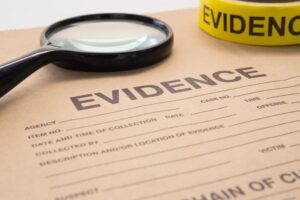
- The police report,
- Medical bills and records
- Prescription receipts
- Wage-loss letters from your employer
- Repair estimates
- Rental-car invoices
Our attorneys can help gather and preserve this information on your behalf.
Consult a Lawyer Early
Even seemingly minor rear-end collisions turn complicated when insurers dispute liability, question injury causation, or offer settlements that don’t cover your actual losses. Soft-tissue injuries that feel manageable in week one sometimes require months of treatment, and early settlement offers rarely include compensation for future medical care.
Williams Elleby Howard & Easter offers free consultations to review your crash, explain Georgia’s fault rules, and outline your options without any obligation. We handle rear-end collision cases throughout Cobb County on a contingency fee basis. Our attorneys are only paid when you are.
Legal representation helps preserve evidence before it disappears, prevents you from making statements that hurt your claim, and signals to the defense that you’re serious about fair compensation rather than accepting the first lowball offer.
Call now to schedule your free consultation: (404) 389-1035.
Fighting the Insurance Company After a Rear-End Crash
Insurance carriers may defend rear-end claims by shifting blame, minimizing the severity of injuries, or using delays. Even when their driver admits texting or following too closely, insurers reopen liability with comparative-fault arguments.
Liability Denials and Comparative Fault
Carriers may reopen fault questions by claiming you stopped abruptly, changed lanes unsafely, or drove with malfunctioning brake lights. We respond by pulling traffic-camera footage, downloading event-data recorders, interviewing passengers or nearby drivers, and building a strong case independent of the traffic citation.
Medical-Bill Disputes and Causation Challenges
Carriers may delay payments by questioning whether injuries stemmed from the collision or pre-existing conditions, prior whiplash, or aging-related neck stiffness. They might hire doctors who review records without examining you and falsely suggest injuries existed before the crash.
We counter with biomechanical evidence and treatment records showing you had no complaints before the collision or that the collision made any pre-existing conditions worse.
Settlement Pressure and Low Initial Offers
Adjusters may make early offers before you finish treatment, knowing that unpaid medical bills create pressure. These initial settlements rarely reflect the full scope of your injuries, particularly when ligament damage or concussion symptoms worsen over time.
Our car accident attorneys respond to low offers by documenting ongoing treatment needs, securing expert opinions on future medical care, and preparing demand packages that force insurers to evaluate the real litigation risk. Trial readiness and a firm with a strong record can help encourage insurers to settle fairly.
Frequently Asked Questions About Rear-End Accident Responsibility in Georgia
Brake-checking allegations require proof. Dashcam video, traffic conditions (stopped cars ahead, red lights, pedestrians crossing), and witness accounts showing no hazard ahead of you rebut the claim.
Police reports influence settlement talks but don’t bind juries. We challenge inaccurate reports with independent evidence, such as skid marks, traffic camera video, event data recorder downloads, and correct errors through amended reports or trial testimony.
Your own uninsured-motorist (UM) and underinsured-motorist (UIM) coverage steps in when the at-fault driver has no insurance or inadequate limits. If they carried Georgia’s $25,000 minimum but your injuries justify $100,000, your UIM policy may cover the gap up to your purchased limits.
Admission at the scene doesn’t guarantee the insurer will pay fairly. Adjusters may offer small settlements on admitted-liability claims quickly, but these offers rarely reflect the true extent of your damages. Legal representation protects you from undervaluation, preserves evidence before it disappears, and converts an opening offer into a demand backed by trial readiness.
Evidence of distracted driving, such as texting or phone use, strongly supports a finding of fault against the rear driver. The law considers this inattention a breach of the duty to maintain a lookout and follow safely.
Protect Your Rights After a Georgia Rear-End Collision

Who is at fault and who should pay in a rear-end accident is not always an open-and-shut case. Rear-end crashes along Kennesaw’s busiest corridors turn into fault disputes when insurers see room to deny or delay.
Williams Elleby Howard & Easter handles rear-end collision claims throughout Cobb County. We send spoliation letters to preserve traffic-camera footage, download event-data recorders before repairs erase them, and reconstruct crash dynamics when police reports leave gaps.
Injured in a rear-end collision in Kennesaw or Cobb County? Call (404) 389-1035 or visit our contact page for your free consultation.
